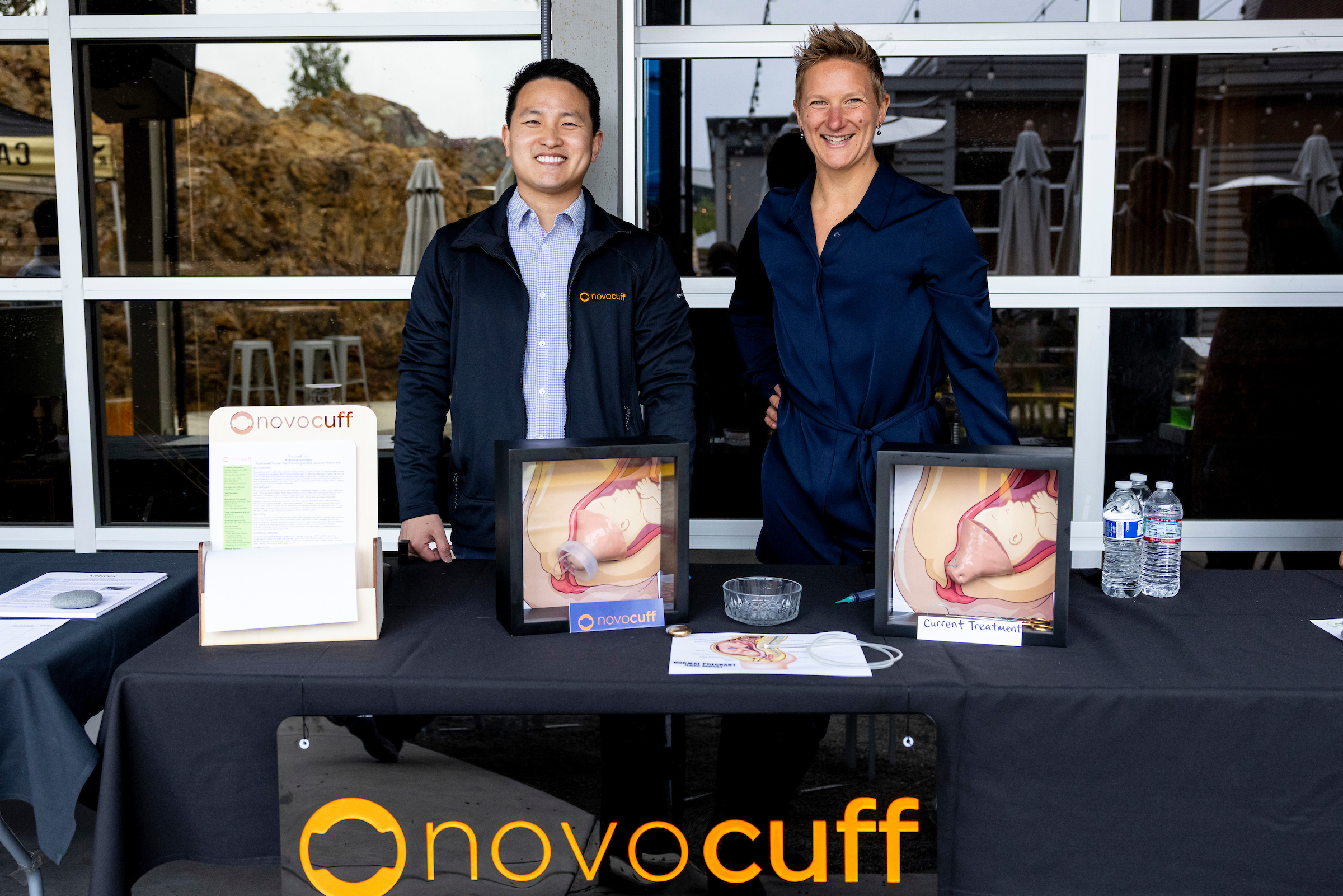Incubator Spotlight: Mense
Mense is a period product company with a mission to provide a comfortable, safe and working solution for people with periods. Founded in 2022 by California Polytechnic State University (Cal […]
Read More
In early April of 2019, Donald Lee accompanied his wife Christine to a routine ultrasound appointment.
The Lee’s were expecting twins — they were not expecting to spend the following weeks in the hospital.
During the ultrasound appointment, Christine was diagnosed with a short cervix, a condition that can increase the likelihood of preterm birth. She was immediately rushed to a hospital across the street.
“We never went home after that,” Donald said.
Christine laid in the hospital with her feet elevated higher than her head for three weeks in an attempt to prevent preterm birth. She eventually gave birth to twin daughters at 24 weeks — about four months earlier than typical.
Premature infants are often born with underdeveloped lungs and immune systems, according to the American Pregnancy Association. Most require medical support in order to survive for the first few weeks of their lives.
The Lee’s spent over 5 months in the Neonatal Intensive Care Unit (NICU).
“I asked a lot of physicians during that time, ‘What could we have done differently to prevent this?’” Donald said. “The answer across the board was the same: There was nothing we could have done.”
That answer wasn’t good enough for Donald.
With a background in mechanical engineering, he set out to invent a medical device that would prevent preterm births. He began researching and prototyping and, eventually, developed a product that would become the foundation of Novocuff, a maternal healthcare startup working to reduce infant mortality caused by preterm birth.
Donald’s daughters are now three years old. They’re healthy. They go to preschool. They beat the odds.
But not all families are as lucky. Roughly 20 percent of infants born at 24 weeks do not survive, according to an American Medical Association journal.
Novocuff is working to change that.
There are a million deaths worldwide attributed to preterm birth, but 75 percent of those deaths could be prevented by delaying labor, Donald said.
Novocuff’s medical device can extend pregnancy for women at risk of delivering their children prematurely. The silicone device is vaginally inserted and supports the body’s natural anatomy, applying compression to the cervix. It’s also adjustable, so physicians can change the compression as the patient’s body changes throughout the course of the pregnancy.
After developing the device, Donald was unsure how to bring that solution to market — so he reached out to a former colleague, Amelia Degenkolb, who was on the founding team of Alydia Health.
Alydia Health, formerly InPress Technologies, was a startup working to prevent postpartum hemorrhage, or excessive bleeding after giving birth, with their device, the Jada System. Degenkolb was one of the engineers who developed the Jada System.
“It was all over the local news that Alydia was acquired by Organon for $240 million, and I assumed (Degenkolb) would be free,” Donald said. “And so I called her and I asked if she could meet for coffee.”
Donald arrived at Skippers Coffee with a presentation and pitch to convince Degenkolb to help bring Novocuff to market, but Degenkolb only needed to look at one page of Donald’s work before agreeing to join.
She became the CEO of Novocuff, handling the startup’s business relations, fundraising and FDA approval process. Donald became the startup’s official CTO, handling the development of their product.
Degenkolb said she was excited to start fresh with Novocuff and felt like she was “going in eyes wide open” after seven years with Alydia Health. “I know about a lot of the potential pitfalls and detours that we can now avoid, and I have the right contacts and support to help us succeed in a much quicker way,” she said.
The Cal Poly Center for Innovation and Entrepreneurship (CIE) was a key resource in the success of Alydia Health — so Degenkolb brought Novocuff to the Cal Poly CIE.
“It was a natural fit for us,” Degenkolb said. “I had already been through this process once with (Alydia Health), and so we did it again.”
Novocuff joined the CIE Incubator, a two-year program that provides startups with the resources needed for smarter, faster growth. It connects participants with mentors, consultants and potential investors. Alydia Health participated in the same program in its early stages and graduated in 2012.
The Incubator also provides opportunities to earn funding through pitch competitions, like the CIE Small Business Development Center (SBDC) AngelCon. AngelCon is an annual event where tech-driven startups on the Central Coast compete to win equity-backed funding. Novocuff participated in AngelCon in 2022 and won $70,000 in equity investment.
With that funding, Novocuff is one step closer to accomplishing their goal of saving babies’ lives.
Donald said he hopes to eventually take Novocuff global. The device’s design is purposefully simple so that lower-income nations can utilize the device, even in the absence of a highly trained physician.
“Globally, there’s about 15 million preterm labor cases,” Donald said. “Our aim is (for) our device to be straightforward enough and simple enough to use globally (so that) we can bring down that millions of deaths significantly.”